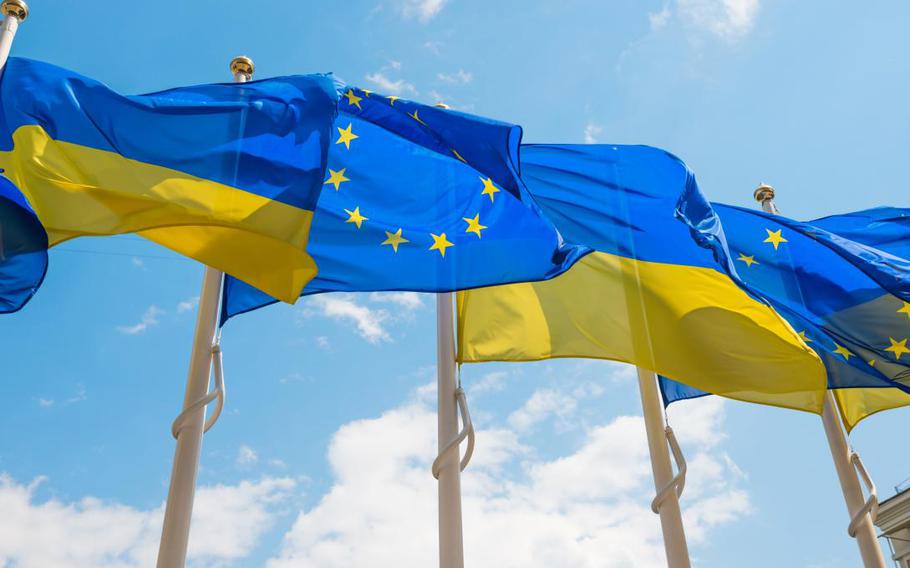
The Ukrainian and European Union flags side by side. Since Russia’s invasion of Ukraine, the E.U. has tried to wean itself off Russian gas imports. (E.U. Delegation to the U.S.)
The European Union’s gas supplies next year may contain flows from Russia that are furtively mixed in, giving Moscow an undesirable workaround when a current transit deal expires, said a candidate tipped to run the bloc’s energy policy.
Europe has tried to wean itself off Russian gas but several eastern states continue to receive it through a pipeline that crosses Ukraine. That agreement ends this year, potentially cutting off countries such as Austria and Slovakia from about 15 billion cubic meters of supply.
One alternative that’s been discussed is for European companies to buy and inject fuel from Azerbaijan. The risk for Czech energy minister Jozef Sikela is that while such gas may appear to be non-Russian, it will be difficult to pinpoint where those molecules originate.
“In case gas transit from Russia via Ukraine is halted, replacement supplies must be found,” Sikela said in a letter to current EU energy commissioner Kadri Simson. “We need to avoid a situation when we purchase gas that is formally non-Russian, but which could be swapped for Russian gas en route, undermining our efforts to reduce dependency on Russian supplies.”
The Czech transmission system can substitute the amount of gas currently coming through Ukraine, Sikela said. The route from Russia currently accounts for about 40 million cubic meters per day.
Sikela has been nominated by Prague to be part of President Ursula von der Leyen’s team after she was reelected by the 27-member bloc. She will assign portfolios for the next five years, and German newspaper Die Welt reported that Sikela will be nominated as the next commissioner for energy.
More stories like this are available on bloomberg.com.
©2024 Bloomberg L.P.